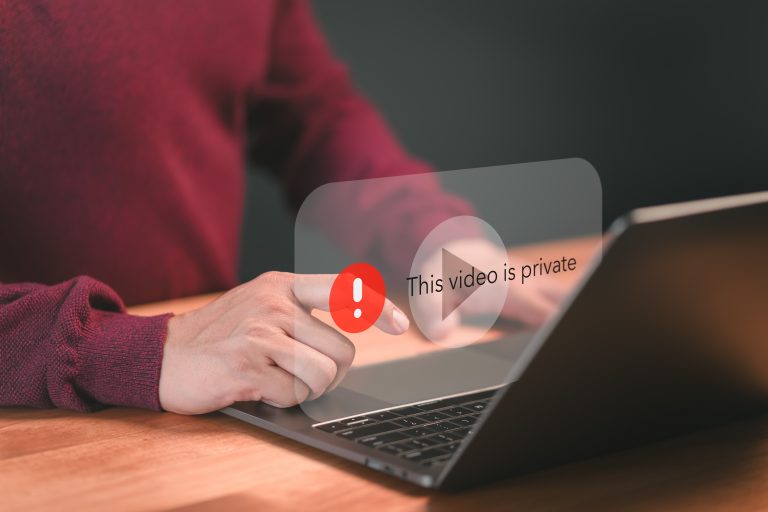Navigating Privacy Settings on Social Media Platforms
December 12, 2023Social media has become a ubiquitous aspect of daily life, making the management of privacy settings increasingly vital. This article…

Learn how to remove personal information from Google search with our step-by-step guide.
Privacy is a big deal for everyone but it’s becoming increasingly more difficult to manage personal contact information and other data online. With hackers getting a hold of personal information to commit identify theft and financial fraud, removing personal data online is not only prudent but also critical today.
Anything you post online can be seen by everyone. This includes personally identifiable information (PII) that is easily found in Google’s search results. Search results are the entryway into information about someone including their PII. Once someone gains access to a webpage such as a business site or shopping site like Amazon or even news articles that contain your personal contact information online, they can use this information not only to simply contact you but to also cause harm.
It’s important to note that social media also accounts for a large percentage of content that includes personal info and personal data. Social media is a hub for hackers to infiltrate and take over someone’s personal identity. In fact, many individuals have opted out of participating in social media groups due to identity theft, as well as misuse of their personal contact information. The last thing you want is someone impersonating you for financial gain.
It’s important to protect your information, including removing any personal data that can be used to target you or to commit identity theft. You can take steps yourself to try and remove your data such as your physical address, email address, phone number, etc. from Google search results as well as work with a firm experienced in finding and removing personal identifiable information and protecting your reputation.
With all the information being made available, often without your consent, such as phone numbers, home addresses, private info, and contact details, privacy concerns are real. What’s more, in cases where explicit content might be on display, the thought of physical harm can even come into play. With so much open access, it’s extremely difficult to keep your personally identifiable information private.
We suggest conducting a search on yourself to see what personal info about you is online. Type your name to view the search results displayed in Google and other search engines like Bing and Yahoo. If you find personal information that can be used against you in some way, including false or misleading information that will negatively impact your reputation, take the necessary steps to remove this information from Google search results and other search engines. If you don’t you could end up being the target of a financial scheme — including ransomware or extortion. In addition, access to your personal information online, particularly if with any negative content, will impact your ability to effectively run a profitable business as well.
There are steps that can be taken to prevent individuals from accessing or posting harmful or sensitive information online.
Google Alerts
Consider setting up a Google Alerts account. This allows you to input any personal information, including your name, so that you will be alerted anytime there is a mention online. You know what’s being said, what information is being made available and can approach the issue before it becomes too large to contain and manage.
Reputable Sites
There are reputable websites that depend on the trust of their users and subscribers and will do what’s needed to ensure that they have measures in place, including comprehensive policies, to protect the dissemination of personal information. To that end, these reputable sites will honor removal requests for harmful or unwelcome content. If you see anything on a reputable site, you can contact the webmaster to remove your personal information or misinformation that may be harmful.
If you contact a webmaster and your request to delete your personal information from the web page is denied or ignored for any reason, then Google may assist in removing the content from search as long as the online information violates its terms and standards. A short list of the types of items Google will remove include:
*According to Google, it may remove personal information (name, physical address, phone number, email address) “that creates significant risks of identity theft, financial fraud, or other specific harms.”
If the information doesn’t violate Google’s terms, Google denies removal requests and the information will not be removed from its search results.
Unfortunately, cyber theft, reputational harm, and misuse of personal information is an ongoing and complex issue that will continue. This is why it’s important to take the necessary measures to decrease the amount of sensitive information about you being made available online, with or without your consent. But it’s hard to do it on your own, and you may hit a wall with your removal request whether you go directly to the webmaster or approach Google. There’s an entire process you need to go through with Google to remove personal information and, in some cases, websites are set up specifically to disseminate harmful information for profit.
Additionally, when the content is removed it may still exist elsewhere online. Instituting various search results can help in discovering material and information you want to be removed, but again, it can be a rather long process for someone who doesn’t have the expertise in this area.
The real question is, how much time do you have to deal with this issue? If you run a business, the answer is likely to be “very little.” This is why you should work with an online reputation management company (ORM) whose primary purpose is to help remove personal information and negative and defamatory content.
An ORM knows how to filter through searches involving your name and other pertinent information about you and remove or request the removal of items deemed personally harmful to you and your reputation. An ORM will also develop a strategy based on its analysis to protect your personal information and reputation and produce positive content in search.
To learn more about how you can protect your internet privacy and remove personal information from the web, contact RemovePersonalInformation today by dialing 844-445-6096 .

Social media has become a ubiquitous aspect of daily life, making the management of privacy settings increasingly vital. This article…

Facebook, with its 2.85 billion users, is a major player in the digital world. Despite its popularity, concerns about data…

The online reputation of a small business is a critical factor that can greatly influence its success. With 87% of…